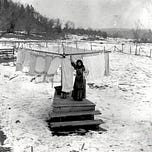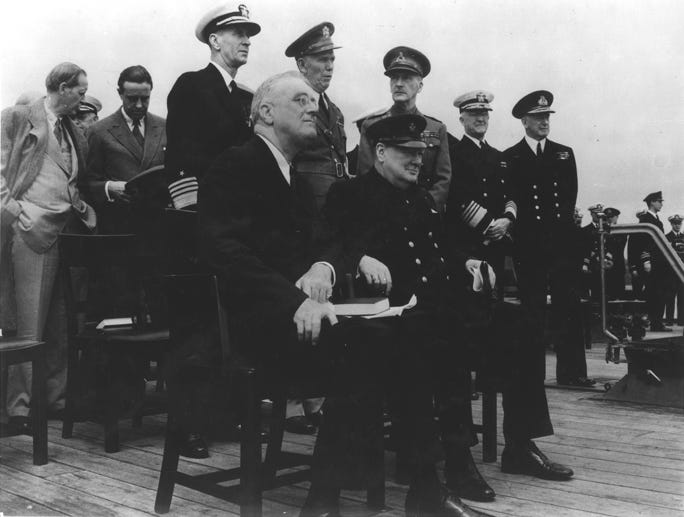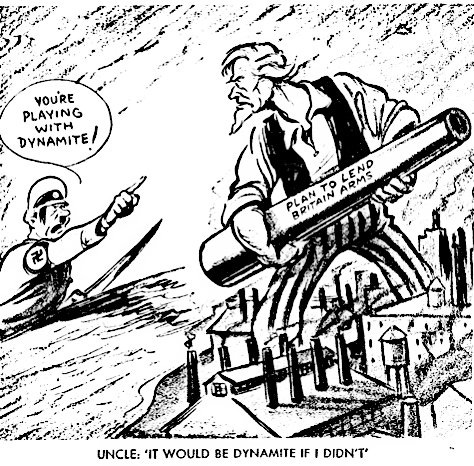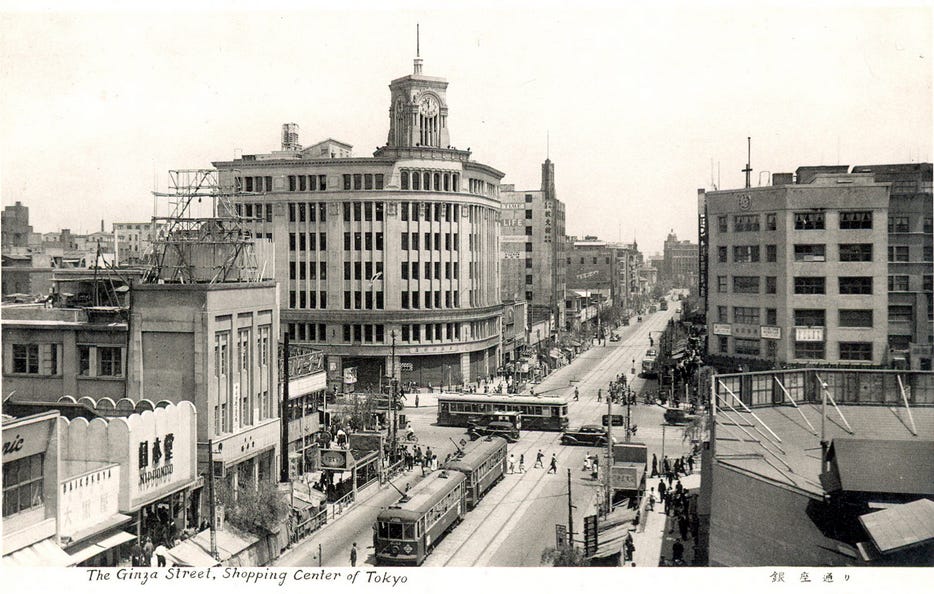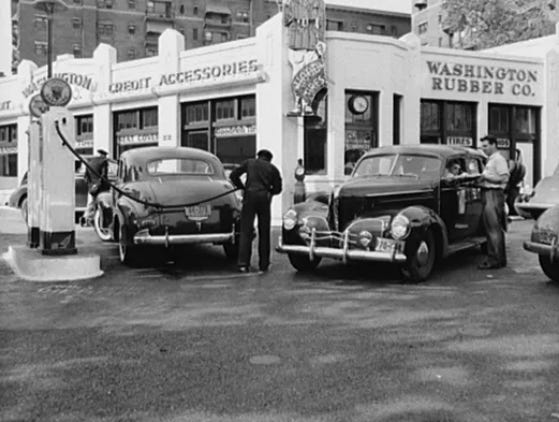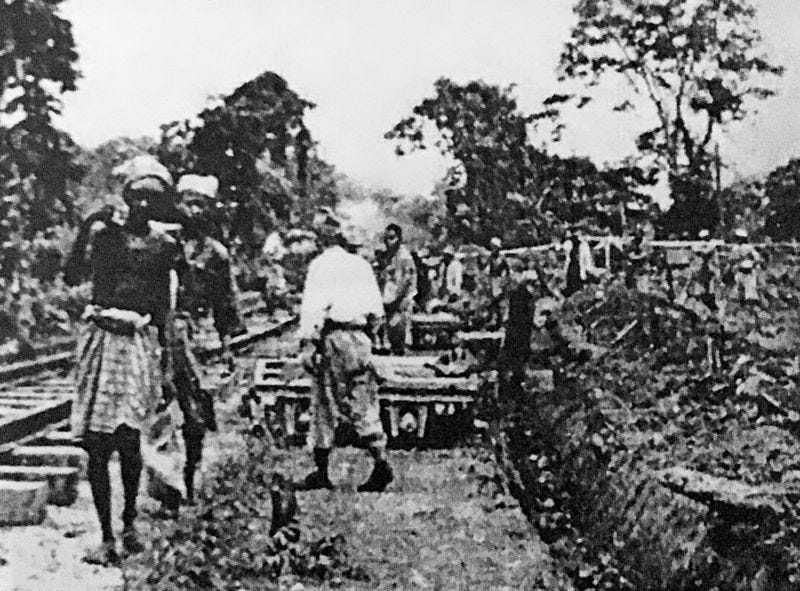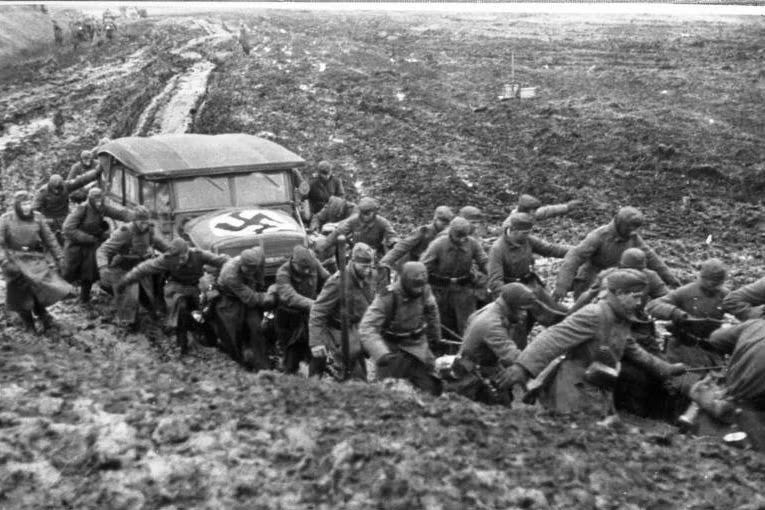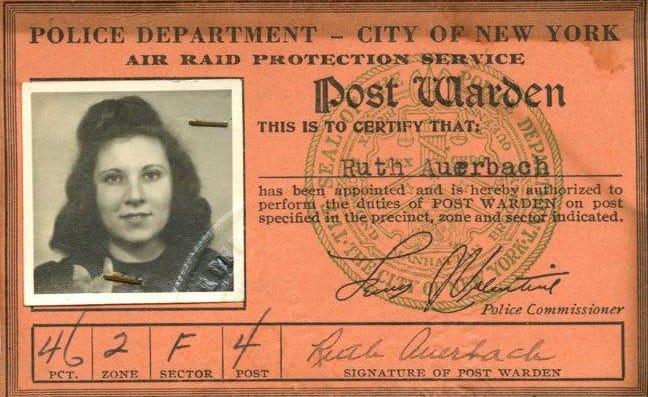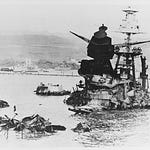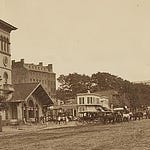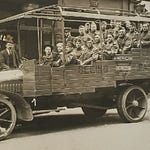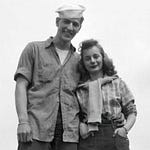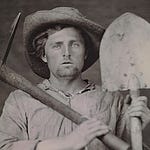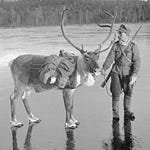Reading the Sunday paper on August 17, 1941.
President Roosevelt is in Maine on his return trip to Washington after having met with British Prime Minister Winston Churchill aboard US and British ships anchored off the coast of Newfoundland.
There, the men signed the Atlantic Charter, stating the two nations’ beliefs on the rights of self-determination, freedom and the need for collective world action in economics and security.
FDR tells reporters that the US is no nearer war than previously, but the Atlantic meeting is viewed as ‘signaling a new era of anti-Nazi collaboration to achieve the final destruction of Nazi tyranny.’
FDR is expected to call for a massive increase in the Lend-Lease program to meet the needs of the Soviet Union, Britain and China.
Lord Beaverbrook, the British Supply Minister, has called for “more and more of everything.”
And the Russian ambassador’s requests for aid are said to be “perfectly enormous.”
[Meanwhile, the American Legion, noting its twenty-year record of opposing communism, voiced objection to providing any aid to the Soviets.]
Administration officials said the US must enlarge the whole concept of “all-out aid” to America’s anti-Axis allies.
Doing so will require a reordering of the American economy “on a more complete war basis,” regardless of whether the US enters “the shooting war.”
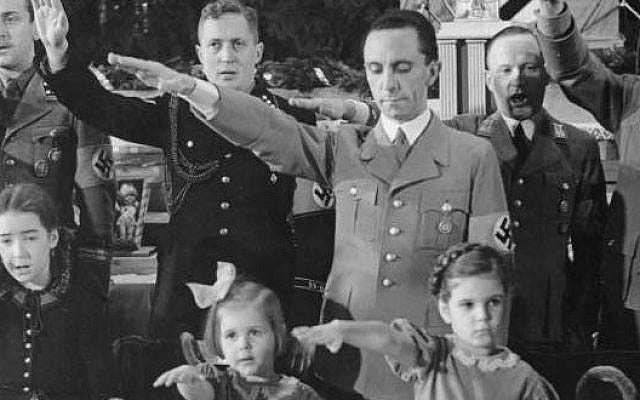
Nazi Propaganda Minister Joseph Goebbels ridiculed the joint statements of principles from the FDR - Churchill meeting, calling it “an outrage against common sense.”
Goebbels:
“Whoever wants to disarm us will have to go to the little trouble of taking our weapons from us.
“To demand that we do that ourselves is stupidity that calls for police action.
“We did that once, in November 1918…At that time [Germany] had foolish leadership and the enemy a smart one, but now that situation is reversed.”
Tokyo expressed “unease” at the prospect of the US supplying the Soviet Union through its Pacific port city Vladivostok.
And Japan declared that a US vessel intended to evacuate American civilians from Japan, believed to number more than 100, would not be permitted to dock.
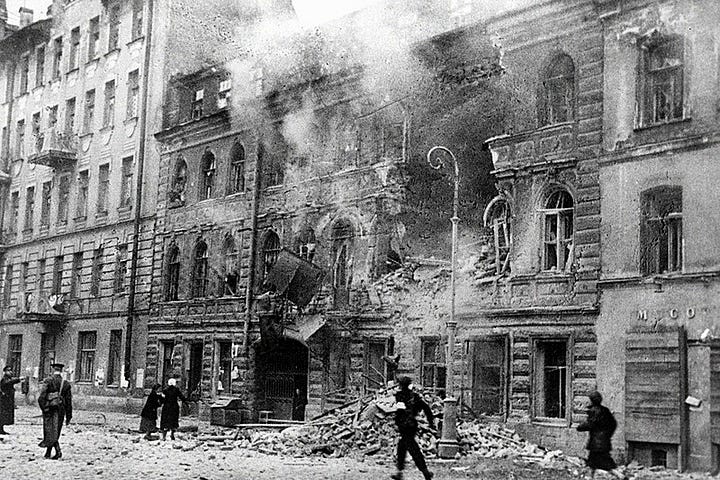
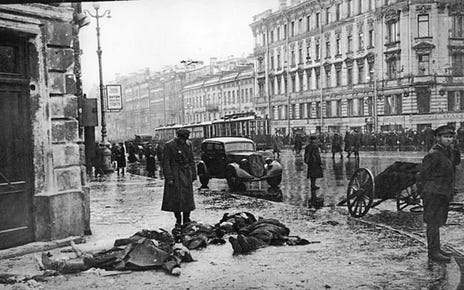
The Nazis announced an assault against Leningrad (St. Petersburg).
The Nazi siege of the city will last for 900 days, costing the lives of 1.5 million Soviet soldiers and civilians.
Putin’s mother and older brother were then Leningrad residents, and his brother would die of diphtheria during the siege.
Putin’s mother was later presumed to have died of starvation and was put out on the street to be collected for burial.
But Putin’s father, a Soviet soldier sent home to Leningrad on leave, recognized his wife’s shoes protruding from the pile of bodies in front of his apartment building.
After convincing the truck crew to release her body to him, he found that she was still breathing and could be nursed back to health.
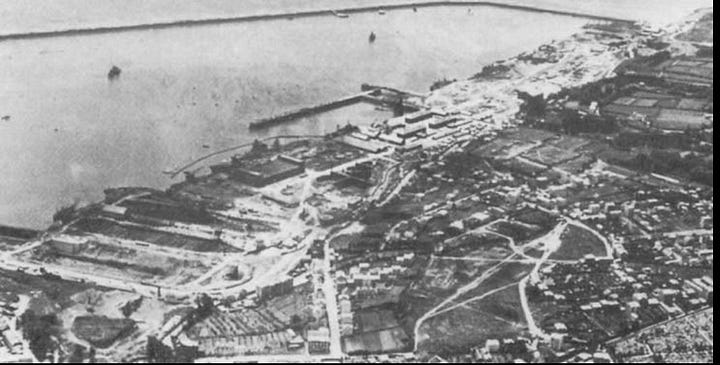
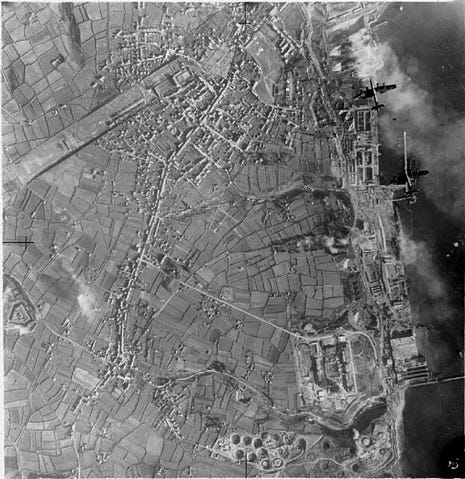
The RAF, flying Boeing aircraft supplied by the US, mounted a large raid against Nazi vessels docked at the harbor in Brest, in northwestern France.
The British bombers also struck rail lines and a Nazi airbase.
Gasoline retailers objected to the government’s order that gasoline deliveries to seventeen East Coast states be reduced by 10%.
They also raised concerns about the request that they close their filling stations by 7:00 PM.
The president of AAA said that consumers should voluntarily conserve gasoline now or they would soon face a government-imposed rationing scheme.
Rationing of gasoline would begin in December 1942.
The US government, along with the Rockefeller Foundation, is sending a contingent of public health experts to Burma.
They will provide medical care to the 250,000 Chinese workers engaged in the construction of a railroad through the Burmese jungle intended to speed the delivery of war materials to China.
The area has a high rate of malaria infection.
The Rockefeller Foundation, an early pioneer in the field of global health, had taken on the goal of malaria eradication in 1915.
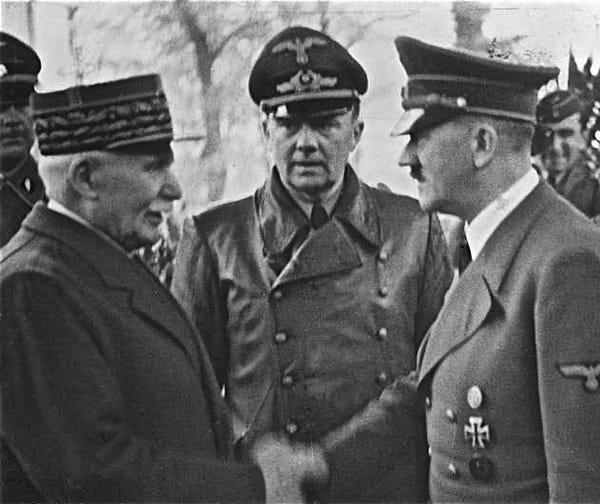
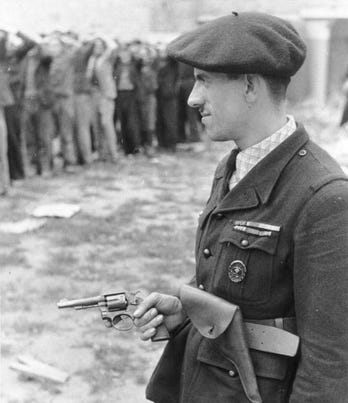
Members of the French Army and all French judges must now swear an oath to Marshall Philippe Pétain, the Chief of State and Premier of Vichy France, who is all powerful.
The oath: “I swear fealty to the person of the Chief of State.”
Fighting between German and Soviet forces in Ukraine raged, despite heavy rains.
Thick mud made maneuvers difficult.
2,200 sector air raid wardens for the City of New York will commence training tomorrow in the Hotel Astor. Trainees will receive instruction in handling incendiary and high-explosive bombs, gas, and first aid treatment.
Also, a program to train 100,000 volunteer nurses aids across the country is announced. Women between the ages of eighteen and fifty are eligible.
The director of the national Public Health Service said the onset of war had caused a decrease in Americans’ use of narcotics. The curtailment of shipment of illicit drugs, making it difficult for users to obtain supplies, was cited as the reason for the decline.
Meanwhile, Harry Anslinger, the first head of the Federal Bureau of Narcotics, has stockpiled 300 tons of opium in vaults at the US Treasury Building in Washington to be used for morphine production. Anslinger hopes to avoid the morphine shortage which plagued the Allies in World War I.
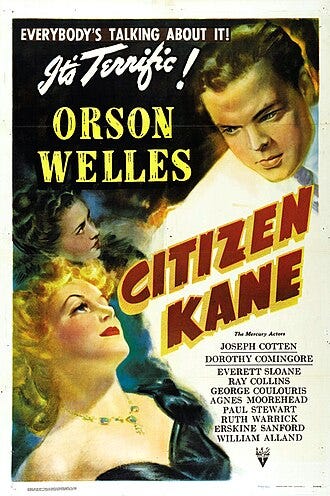
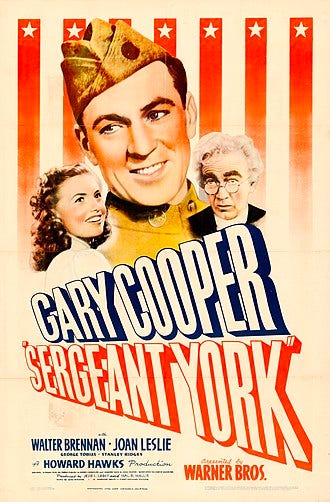
And finally, if all the bad news became too much, readers could put down the paper and go see a great movie.
Citizen Kane and Sergeant York were new releases, and audiences as well as film critics loved them.
******************************
I’ll see you on Monday.
— Brenda
Stories taken from the New York Times.


